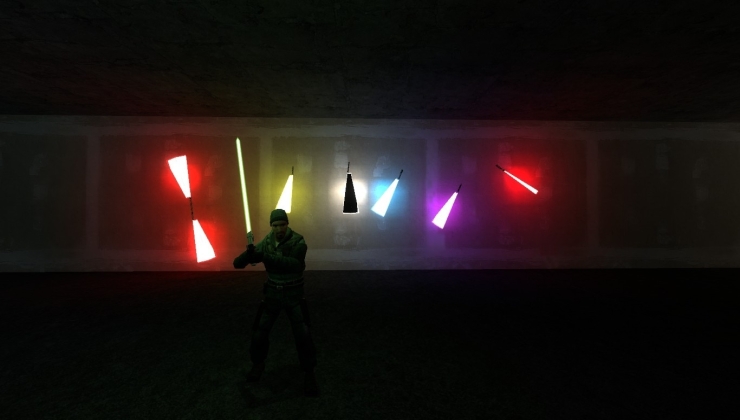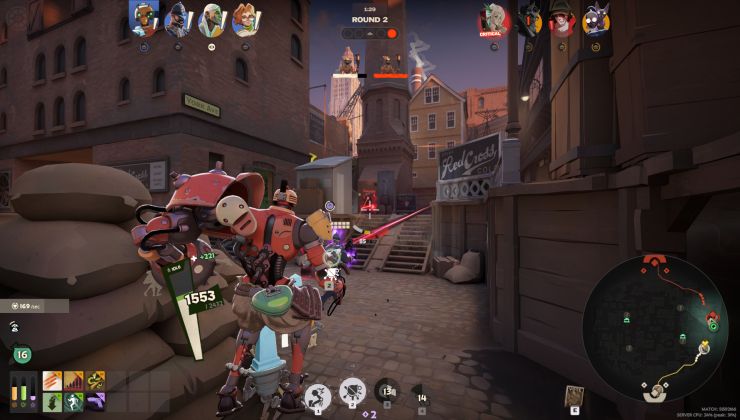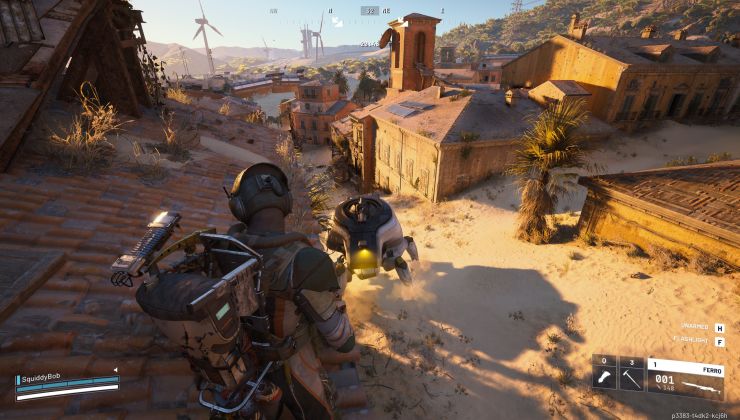So here we are again GOL readers, time for another one of my awful editorials and this time I am asking you/talking at you the glorious community about Wine ports!
First of all, if you don't know what Wine is then get out (or just go to WineHQ). So Wine is a very useful resource at times to run something under Linux that you couldn't do normally, it does however come with its own set of problems.
To me there is a time when a Wine port is better than no port at all, take System Shock 2 for example they no longer have the source code for it (it's not exactly a new game), so rather than us buying a version marked for windows and then manually setting it up in Wine we have a chance to show the sale is for Linux, this gives another developer some Linux sales stats to look at, better than just seeing Windows sale right?
Well that can also come with a downside as well, it can make other developers fall in line and simple say "let's just do wine ports" this could be dangerous for Linux to see more of, but what choice does a developer have when the source is no more?
You could also see it from this side - what if a developer built a game that uses closed source middleware that cannot be ported to Linux, see LIMBO in one of the Humble Bundles as an example of this. The developer teamed up with Humble for the port and Humble went to Codeweavers (creators of Crossover and Wine financial supporters) who got a backlash about the "port" because of its use of Wine, a lot of their feedback even included people stating it worked better to use the Windows version in Wine rather than their custom Wine port.
Should a developer rip out a whole chunk of their game and rewrite parts of it? That would cost time and money which especially for indie developers comes at a high price. Would it not be better to get a supported version using Wine where the developer has tested it? I say no personally, read on for why.
I spoke to Ryan "Icculus" Gordon, porter of many games to Linux on the matter and he had this to say:
A pretty good answer from Ryan and of course I wholeheartedly agree on it, there are a lot of big name publishers who probably don't even know what Linux is and so Wine is sadly needed to run their games until Linux gaming builds enough momentum to appear on their radars. As Ryan says as well for older games it can be a life saver as many developers may not look back at their older games.
One of the main problems with Wine ports is performance and configuring, Wine users will be no stranger to spending hours configuring Wine and installing extra packages to get games to work only to then have half the performance of the same game under Windows. Wine is after all translating DirectX calls to OpenGL, people may claim there isn't a performance drop, but anyone who actually spends time using Wine will know there can be massively poor performance.
What if there is a bug in Wine itself that makes the game have horrible glitches? The developer would then need to contact Wine and either hope they fix it or try to get into programming for Wine and fix it themselves, when they could spend that time creating a real port.
Then you have to deal with Wine updates, a single update from one version of Wine to another can completely break a game (this has sadly happened to me before) and rolling back to an older version isn't as simple as 1-2-3 done.
Minor Point
You then need to take into account file system clutter, each "port" using wine will have a folder full of wine specific files to emulate a windows environment along with all the extra libraries from Windows programs they need to run, every single "port" will have this, it can end up taking up not just a lot of space, but completely cluttering up your file system which is in my eyes not a major issue, one for the people with file/folder OCD for things to be neat.
Although I suppose it could become an issue for someone wanting to backup saved games, it could take a while to find them.
Last Thought
The main thing it all comes down to is perception, Linux users generally don't like feeling like they are getting half-arsed games, and developers may find they get a backlash if it is not a traditional port. After all developers need money and a good name for themselves, why risk getting a bad name on Linux for doing what Linux users may see as lazy by bundling it with something they could set up themselves?
First of all, if you don't know what Wine is then get out (or just go to WineHQ). So Wine is a very useful resource at times to run something under Linux that you couldn't do normally, it does however come with its own set of problems.
To me there is a time when a Wine port is better than no port at all, take System Shock 2 for example they no longer have the source code for it (it's not exactly a new game), so rather than us buying a version marked for windows and then manually setting it up in Wine we have a chance to show the sale is for Linux, this gives another developer some Linux sales stats to look at, better than just seeing Windows sale right?
Well that can also come with a downside as well, it can make other developers fall in line and simple say "let's just do wine ports" this could be dangerous for Linux to see more of, but what choice does a developer have when the source is no more?
You could also see it from this side - what if a developer built a game that uses closed source middleware that cannot be ported to Linux, see LIMBO in one of the Humble Bundles as an example of this. The developer teamed up with Humble for the port and Humble went to Codeweavers (creators of Crossover and Wine financial supporters) who got a backlash about the "port" because of its use of Wine, a lot of their feedback even included people stating it worked better to use the Windows version in Wine rather than their custom Wine port.
Should a developer rip out a whole chunk of their game and rewrite parts of it? That would cost time and money which especially for indie developers comes at a high price. Would it not be better to get a supported version using Wine where the developer has tested it? I say no personally, read on for why.
I spoke to Ryan "Icculus" Gordon, porter of many games to Linux on the matter and he had this to say:
Ryan GordonI consider Wine useful for archeology's sake. There are games that won't ever be ported and it helps guarantee they won't be lost to the ages. I can imagine a near-future where that's even helpful to running old Windows games on modern Microsoft OSes, just like DOSBox is popular now.
I've said before that it's better than nothing for today's games, for the times when today's publishers won't return your calls. But I'm hoping that as Linux games build momentum, that we start looking at those publishers as bad citizens of the gaming community, and the problem becomes social and economic instead of technological.
A pretty good answer from Ryan and of course I wholeheartedly agree on it, there are a lot of big name publishers who probably don't even know what Linux is and so Wine is sadly needed to run their games until Linux gaming builds enough momentum to appear on their radars. As Ryan says as well for older games it can be a life saver as many developers may not look back at their older games.
One of the main problems with Wine ports is performance and configuring, Wine users will be no stranger to spending hours configuring Wine and installing extra packages to get games to work only to then have half the performance of the same game under Windows. Wine is after all translating DirectX calls to OpenGL, people may claim there isn't a performance drop, but anyone who actually spends time using Wine will know there can be massively poor performance.
What if there is a bug in Wine itself that makes the game have horrible glitches? The developer would then need to contact Wine and either hope they fix it or try to get into programming for Wine and fix it themselves, when they could spend that time creating a real port.
Then you have to deal with Wine updates, a single update from one version of Wine to another can completely break a game (this has sadly happened to me before) and rolling back to an older version isn't as simple as 1-2-3 done.
Minor Point
You then need to take into account file system clutter, each "port" using wine will have a folder full of wine specific files to emulate a windows environment along with all the extra libraries from Windows programs they need to run, every single "port" will have this, it can end up taking up not just a lot of space, but completely cluttering up your file system which is in my eyes not a major issue, one for the people with file/folder OCD for things to be neat.
Although I suppose it could become an issue for someone wanting to backup saved games, it could take a while to find them.
Last Thought
The main thing it all comes down to is perception, Linux users generally don't like feeling like they are getting half-arsed games, and developers may find they get a backlash if it is not a traditional port. After all developers need money and a good name for themselves, why risk getting a bad name on Linux for doing what Linux users may see as lazy by bundling it with something they could set up themselves?
Some you may have missed, popular articles from the last month:
All posts need to follow our rules. Please hit the Report Flag icon on any post that breaks the rules or contains illegal / harmful content. Readers can also email us for any issues or concerns.
23 comments
Quoting: hardpenguinWell, my point was, if you'd like to see games like those from this list: http://transgaming.com/cider/games - for example Prince of Persia, The Sims, Need for Speed franchises officially released on Linux, this would be the very only way for now. It took some time unless such publisher as Aspyr appeared and started porting games natively on Mac.Wow there's a lot of boring stuff on that list in my opinion (I wish the Sims had never been invented). HoMM V is the only one that would have come in useful to me, since it was pretty painful and buggy running it in plain wine. Linux Steam has way more interesting stuff, and there is going to be a plethora of cool cross-platform games coming out of the crowdfunding scene in the next year or two. I don't think we have much to be jealous about ;)
EDIT:
Here's a short look on Mac gaming situation. Can we compare Linux to this?
[http://forums.macrumors.com/showthread.php?t=1499819](http://forums.macrumors.com/showthread.php?t=1499819)
0 Likes
I do not use Wine enough to honestly be bothered to get multiple versions of it, even if PlayOnLinux is supposed to make this less difficult.
0 Likes
i really like wine and pay for cross over also, wine is really important if star citizen and elite dangerous do not have linux native clients, i hope bluestacks does linux support also to run more android apps
0 Likes






 How to setup OpenMW for modern Morrowind on Linux / SteamOS and Steam Deck
How to setup OpenMW for modern Morrowind on Linux / SteamOS and Steam Deck How to install Hollow Knight: Silksong mods on Linux, SteamOS and Steam Deck
How to install Hollow Knight: Silksong mods on Linux, SteamOS and Steam Deck